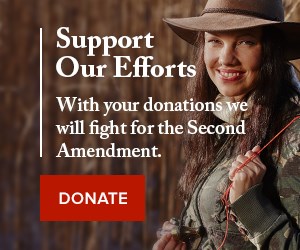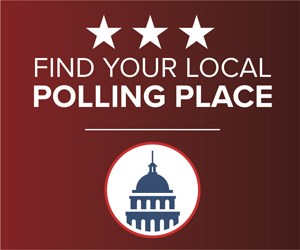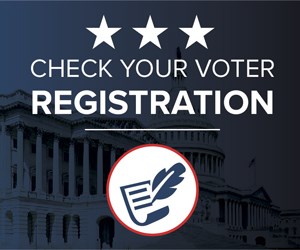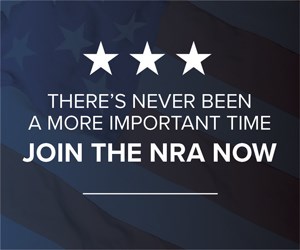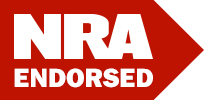The War on Gun Shows Mayor Bloomberg's new "study" promotes anti-gunners' real goals: reducing gun sales and registering guns.
In October, New York City Mayor Michael Bloomberg fired the latest salvo in gun control supporters' decades-old campaign for federal laws to reduce gun sales and to impose gun registration. Implementing a strategy laid out by the Violence Policy Center (VPC) in the 1990s and pushed in Congress by Sen. Frank Lautenberg, D-N.J., from 1998 forward, Bloomberg's target was a part of the Second Amendment community that benefits over one million gun owners annually. His target is a part of our community that gives us access to broad varieties of guns and related equipment--and lets us gather to develop the grassroots clout that has made us one of the most powerful political forces in the country.
As you might have guessed, I'm talking about gun shows. In a news conference dutifully covered by anti-gun newspapers, Bloomberg announced what he claimed was "a wide ranging undercover investigation by the city of New York into illegal gun sales" which, according to Bloomberg, found "74 percent of gun show sellers" conduct themselves with "a willful disregard of the law." The newspapers didn't say it, so I will: Bloomberg`s "investigation" was a sham. As its official report states, the city`s operatives attended just seven shows and only in states that (according to Bloomberg`s misuse of trace data) "supply crime guns trafficked across state lines at the highest rates." Within those states, they selected local areas with the highest rates of incidence of "federal prosecutions for straw buying and trafficking" and "proximity to urban areas experiencing gang violence." And ultimately they focused on just 47 sellers whom they thought showed "visual signs of engaging in the business without a license" or "tell-tale signs of straw purchases."
This could easily be a story about the anti-gun obsession of an ego-driven local politician trying to become relevant on a national level. After all, the last time Bloomberg pulled a similar stunt, federal law enforcement sources complained he may have compromised as many as 20 criminal investigations.
The U.S. Department of Justice warned him there were "potential legal liabilities that may attach when persons outside of law enforcement undertake actions typically reserved for law enforcement agents," such as when people "without proper law enforcement authority, misrepresent that they are the actual purchasers of the firearms," and "unintentionally interrupt or jeopardize ongoing criminal investigations." And Virginia`s Attorney General Bob McDonnell--now newly elected as the Old Dominion`s governor--warned Bloomberg he may have violated state law as well, and won passage of state legislation to deter future meddling. But "Hizzoner" still refuses to take the hint. The real story, however, is more complex than Bloomberg`s political shenanigans--and it explains why gun control supporters focus so intensely on gun shows.
Gun control supporters` desire to get firearms registered nationwide goes back to the debate over the National Firearms Act of 1934, when Franklin Delano Roosevelt`s attorney general, Homer Cummings, pushed for the Act to require handgun registration. That proposal (and another that would have defined "machine gun" to include semi-automatics) failed, due to the NRA`s strong opposition.
In the 1970s, the National Council to Control Handguns (the predecessor of today`s Brady Campaign), raised the specter of handgun registration again, and in a moment of overconfidence admitted why it considered registration so important.
As the group`s leader described it, "The first problem is to slow down the increasing number of handguns being produced and sold in this country. The second problem is to get handguns registered. And the final problem is to make the possession of all handguns and all handgun ammunition--except for the military, policemen, licensed security guards, licensed sporting clubs and licensed gun collectors--totally illegal."
Not only did Congress reject that three-step plan, but in 1986 it passed the NRA-supported Firearms Owners` Protection Act (FOPA). Among its many key reforms, FOPA amended the Gun Control Act (GCA) of 1968 to reduce burdens on gun dealers and record-keeping on gun owners.
First, FOPA allowed federally licensed firearm dealers to do business at gun shows. (Until then, a dealer could only operate at the address on his license.) Second, FOPA ended abusive prosecutions of gun collectors by making clear a person does not need a license to occasionally sell firearms to reduce or improve a personal gun collection. And third, FOPA eliminated the GCA`s record-keeping requirement on sales of handgun ammunition. (For more on that issue, see p. 50.) During the Clinton administration, however, two developments gave gun control supporters new hope of reducing gun sales.
First, the 1993 Brady bill increased dealer licensing fees significantly. Second, and more important, the 1994 Clinton crime bill included language that let the Bureau of Alcohol, Tobacco and Firearms deny license renewals on the basis of local zoning ordinances. As a result of that and other Clinton administration policies, the number of FFLs in the country was reduced by 75 percent within just a few years.
Once again, though, things didn`t go the way anti-gunners hoped. Gun sales actually increased at a faster pace than the increase in the U.S. population. And as gun control supporters are sorely aware, the nation`s thousands of gun shows each year are among the main reasons for that trend.
That`s why, in the 1990s, anti-gun groups and politicians began claiming a so-called "gun show loophole" gives criminals "easy access" to guns by letting people other than dealers sell guns at shows without running their transactions through the National Instant Criminal Background Check System (NICS).
To be sure, it`s not a "loophole," because FOPA made clear no license is required to make "occasional sales, exchanges or purchases of firearms for the enhancement of a personal collection or for a hobby," or to "[sell] all or part of [a] personal collection of firearms." But an argument over legal technicalities misses the point. It`s not about criminals getting guns--the federal government`s own studies have found that less than one percent of people in prison for using guns in felonies got their guns from shows. For gun control supporters, it`s really about the American people owning guns.
Bloomberg says his publicity stunt proves the need to pass S. 843 and H.R. 2324, legislation introduced in Congress by Sen. Lautenberg and Rep. Michael Castle, R-Del., respectively. But those bills propose far more than requiring background checks. Modeled after the template published by the Violence Policy Center in 1996, they would require gun show promoters to register with the attorney general and to pay unspecified fees to operate shows. Promoters would have to maintain ledgers of all non-dealers who so much as bring guns to shows--and H.R. 2324 would also require promoters to provide those ledgers to the attorney general. Shows typically last just two or three days, but both bills would require all such non-dealers to sign the ledgers before the shows begin, a restriction that would seriously suppress attendance.
Gun control supporters` lips may lie, but their actions don`t. In 1999, Sen. Lautenberg`s allies had their chance to vote for legislation that would have required NICS checks on private trans-actions at shows, but they voted it down because it didn`t go far enough.
As always, anti-gunners want more. And if they get what they want now, they will soon demand additional restrictions. VPC has already proposed FFLs be issued only to storefront businesses, and dealers at shows be prohibited from selling handguns and "assault weapons." The Brady Campaign demands that all private gun sales be run through NICS, even if they don`t take place at a gun show, and even if they`re between family members or friends.
That`s how gun sales are already regulated in California. And if all private gun sales were subjected to NICS, it would not be long before Brady demanded the FBI maintain a record of all handgun sales nationwide.
Gun control supporters aren`t interested in preventing criminals from obtaining guns; otherwise they wouldn`t focus on gun shows.
The Bureau of Justice Statistics has twice reported that most criminals get their guns from the street or other illegal sources. And BATFE has noted theft is a major source of criminals` guns.
If crime control isn`t the real goal, the intent should be clear. Gun control supporters attack gun shows because the shows are an integral part of the Second Amendment community.
Next time you go to a gun show, think about what you`re seeing. It`s a distinctly American event that helps keep Americans supplied with the equipment we need for self-defense, training, competition and hunting. It`s an event that brings us together to share our common interests. And perhaps most importantly--thanks in part to many show promoters` donations of table space and reduced admission charges for NRA members--it`s an event that helps us stay informed and organized in the never-ending fight to protect our Right to Keep and Bear Arms.




